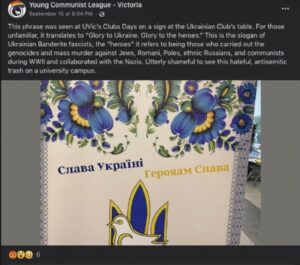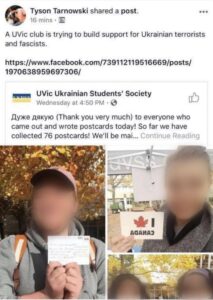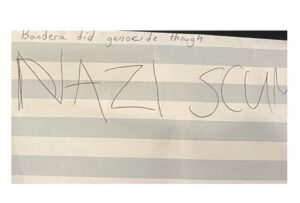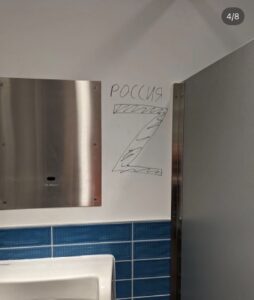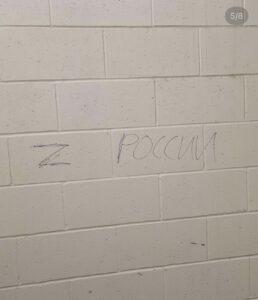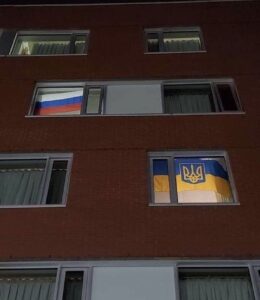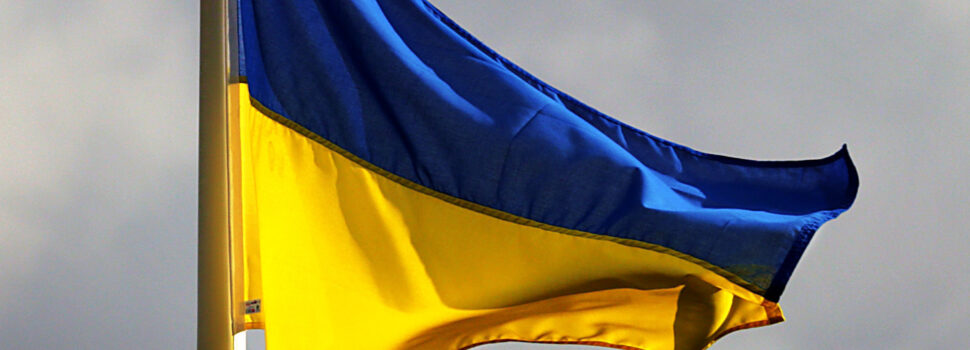
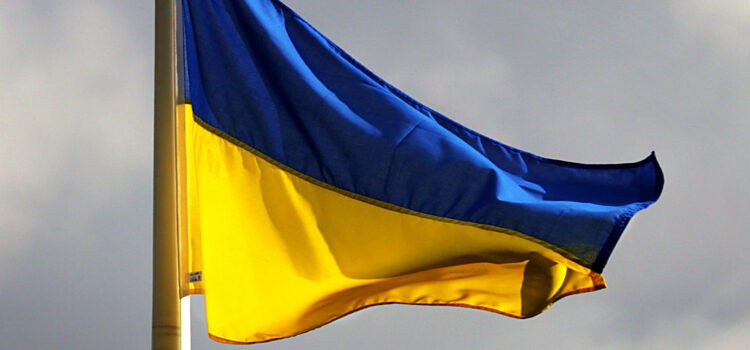
Students look for schools to take action as anti-Ukrainian hate speech increases at Canadian universities
News Mar 28, 2023 Oleksandra Chorna

Since the full-scale Russian invasion of Ukraine last year, there has been a rise in anti-Ukrainian sentiment in Canada, especially at universities and colleges. With the world recently marking the first anniversary of the war, some worry that the harassment of Ukrainian students has reignited with new force.
One of the institutions where these kinds of incidents are happening is the University of Victoria in British Columbia. According to a statement published on Instagram, the anti-Ukrainian hate speech on campus started spreading as early as September and continues to do so to this day.
Among the most prominent incidents are accusations accusing the Ukrainian Students’ Society (USS) at Victoria of fascism and antisemitism made by the Young Communist League (YCL) on their social media. On their Facebook page, YCL has also accused the Ukrainian government of fascism, calling it a “Kyiv regime” — a propagandistic term used to imply that Ukraine is run by nazis.
Other incidents of harassment on campus included labelling Ukrainians as “nazi scum” as well as direct insults to Ukrainian students.
One such insult was directed towards Anastasia Ishchook, a USS representative at the university. She told Skedline it happened during one of the fairs held by their club.
“Me and my friend were approached by an individual who asked if either of us speaks Ukrainian. When I said I do, this guy mumbled some insult to me in a broken Russian and swiftly walked away, I didn’t even have time to say anything,” says Ishchook.
She adds the club is currently investigating the identity of this person and it is yet to be determined whether he has any connections to YCL. The YCL did not respond to Skedline requests to comment on the situation.
According to Ishchook, despite the scope of the harassment, the University of Victoria failed to properly address the ongoing disinformation campaign at the university.
Ishchook says without the university’s support, many Ukrainian students feel unsafe on campus. She herself has faced mental struggles.
However, even with these challenges, Ukrainians at the University of Victoria say they refuse to give up. They have implemented measures to combat the hate speech, as well as creating plans for the future.
Similar incidents of harassment are happening at Carleton University in Ottawa. Like in Victoria, the anti-Ukrainian hate speech on campus began spreading in September. It has included pro-Russian graffiti across campus, featuring the “Z” letter — that has been associated with the Nazi swastika and became a symbol of the Russian war in Ukraine — with the word “Russia” written in Cyrillic. Some yet-to-be-identified students have also been placing Russian flags on campus as well as verbally insulting Ukrainian students.
According to Erin Okrainec, Vice president of Carleton’s Ukrainian Students’ Club, a big part of the disinformation campaign are so-called “peace councils.” Despite the name, these events are typically used to spread pro-Russian propagandistic narratives, such as blaming NATO for the war in Ukraine and framing Russians as the victims of the situation. The events are common enough that one was happening as Erin was doing the interview for Skedline.
Like with the University of Victoria, Okrainec says Carleton has lacked a response to the ongoing harassment, so their club has to combat it mostly on their own.
Despite the efforts, the climate has made many Ukrainians feel unsafe on campus
However, Okrainec Erin notes that some professors at Carleton are also very supportive of Ukrainians.
And though these incidents have taken a mental toll on Ukrainian students, Okrainec and other club members say they’ll continue to fight for a safe learning environment.

